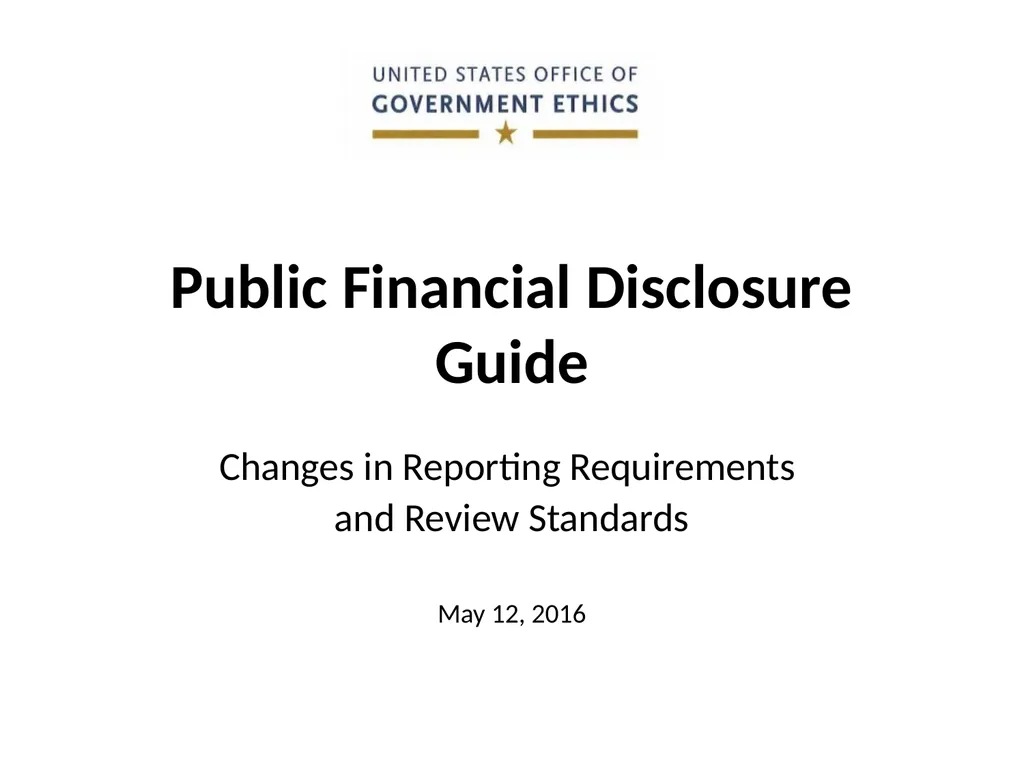
Author : alexa-scheidler | Published Date : 2025-06-16
Description: Public Financial Disclosure Guide Changes in Reporting Requirements and Review Standards May 12, 2016 Positions Filers need not report an unpaid position with an advisory committee for a state or local government, unless the filer hadDownload Presentation The PPT/PDF document "" is the property of its rightful owner. Permission is granted to download and print the materials on this website for personal, non-commercial use only, and to display it on your personal computer provided you do not modify the materials and that you retain all copyright notices contained in the materials. By downloading content from our website, you accept the terms of this agreement.
Here is the link to download the presentation.
"Public Financial Disclosure Guide Changes in"The content belongs to its owner. You may download and print it for personal use, without modification, and keep all copyright notices. By downloading, you agree to these terms.













